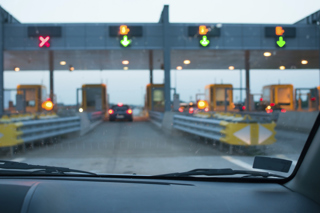Toby Poston, BVRLA
If the intelligent mobility market is to flourish, the regulatory environment must keep pace with innovation, says Toby Poston.
The BVRLA is eager to ensure competition isn’t stifled and the fleet and leasing industry is able to reap the rewards that emerging technologies can offer.
However, for that to happen, Poston says issues over the access and use of data, which will become increasingly available, must be resolved.
“We, like the AA and the FLA, believe the vehicle owner should be in charge of the data that is shared and used,” he said.
The BVRLA, which published a fleet technology white paper recently, is also calling for common data standards and metrics.
Poston said: “We believe there should be open, standardised and secure data platforms, so that a variety of stakeholders can develop services for fleet operators and drivers.”
Barriers to the adoption of technologies, such as the cost of connectivity, security, red tape and achieving a return on investment, can be overcome, according to Poston. He added: “We’re here to make sure that our industry is positioned well among policy-makers and we’re included in any future consultations.”
John Miles, Arup and Automotive Council
Intelligent mobility could help tackle congestion and stop the road network from grinding to a halt from predicted traffic rises, according to John Miles.
However, any improvements must not be at the expense of road safety and transport’s effect on the environment, he added.
“We want to make road travel better for everybody, whether they are a social or business traveller,” said Miles, who is chairman of the Automotive Council’s working group on intelligent mobility.
“We want increased traffic flow, but we also don’t want increased accidents and deaths.”
The Automotive Council is currently working with the Government on the ‘intelligent mobility development programme’.
Miles explained: “We have made the case to Government over several years now and in the run-up to the election it is talking about putting some serious money on the table to enable a range of projects to occur.”
Funding will be made available between now and 2019 to help drive emerging technologies, said Miles, and the fleet industry can help shape the market.
“If you are responsible for 50% of vehicle purchases in the UK, you are a huge voice of the user,” he added.
Pete Houlden, FIGIEFA
Without equal access to the vehicle or its data, the independent sector could be unable to offer a competitive service, says Pete Houlden.
“We believe there must be a standardised, inter-operable, secure and open platform for future in-vehicle applications and services,” he said.
“In order to achieve this, we have to define this new access to the vehicle. Today, we have the OBD port on the vehicle, but increasingly we are seeing that the requirement to access the vehicle is through an in-built telematics system.”
In fact, Houlden believed that eCall – the European automated in-vehicle emergency call system due to be implemented by 2017 – could hasten this lack of access for the independent sector.
He explained: “We all know what the goals are for eCall, but there is a hidden element that it will bring – eCall installs the basic telematics functionality into
the vehicle.”
Labelling it as a potential Trojan Horse for the independent aftermarket, Houlden added: “Unless legislation supports the fact that this technology can be opened and access provided to independents, it will facilitate vehicle manufacturers actually having increased closed systems.”
Kit Wisdom, Alphabet
Environmental concerns, increased urbanisation and economic influences are resulting in changing customer expectations, says Kit Wisdom.
“We see mobility in transition,” he added. “From a usage model, it has moved from a prevalence of owning the vehicles to leasing the vehicles and now, slowly but surely, to the sharing of vehicles.”
It has seen Alphabet and other leasing providers adapt their vehicle-centric product offering to provide a more complete mobility solution.
Wisdom explained: “It’s more of a focus on the driver or the employee and, whether they have a company car or not, what travel needs they have and how that can be delivered, be that anything from air, rail, all the way through to the car.”
For example, across Western Europe, especially in the Netherlands, Wisdom says that the demand for corporate car sharing from business customers has increased.
He added: “We are seeing tenders go out now where people are actually saying ‘manage my mobility budget, don’t just provide me with a fleet of vehicles, do everything for me. Here’s ‘X’ amount of money and I want you to effectively and efficiently manage that through a better eco system of mobility’.”
















Login to comment
Comments
No comments have been made yet.